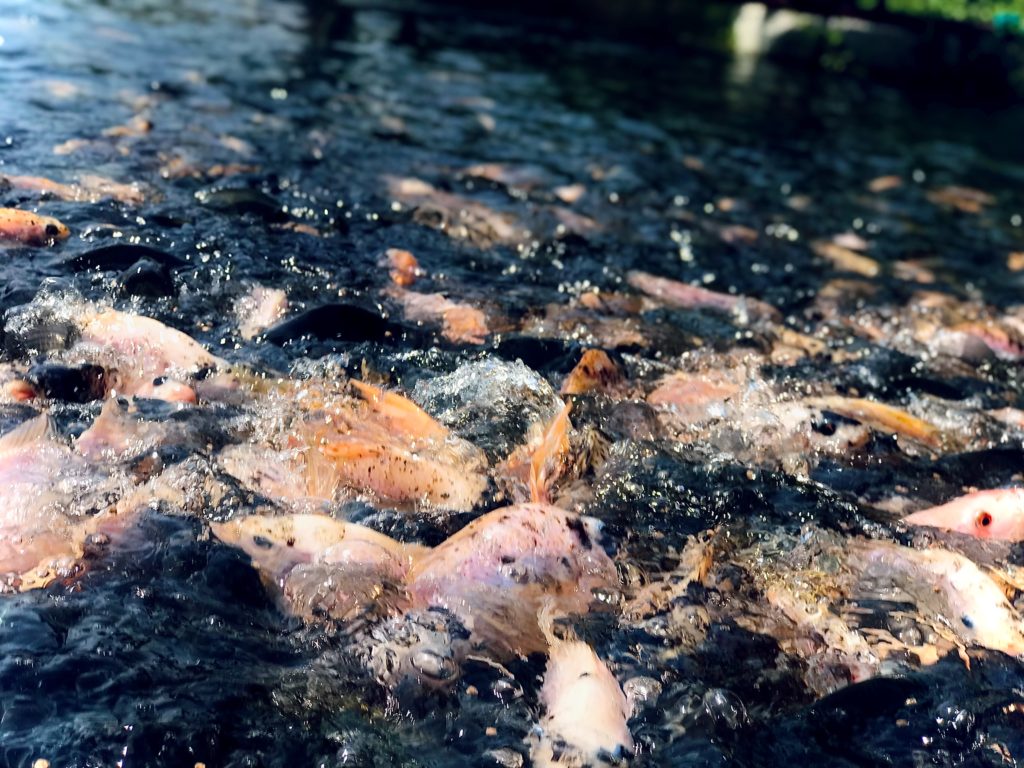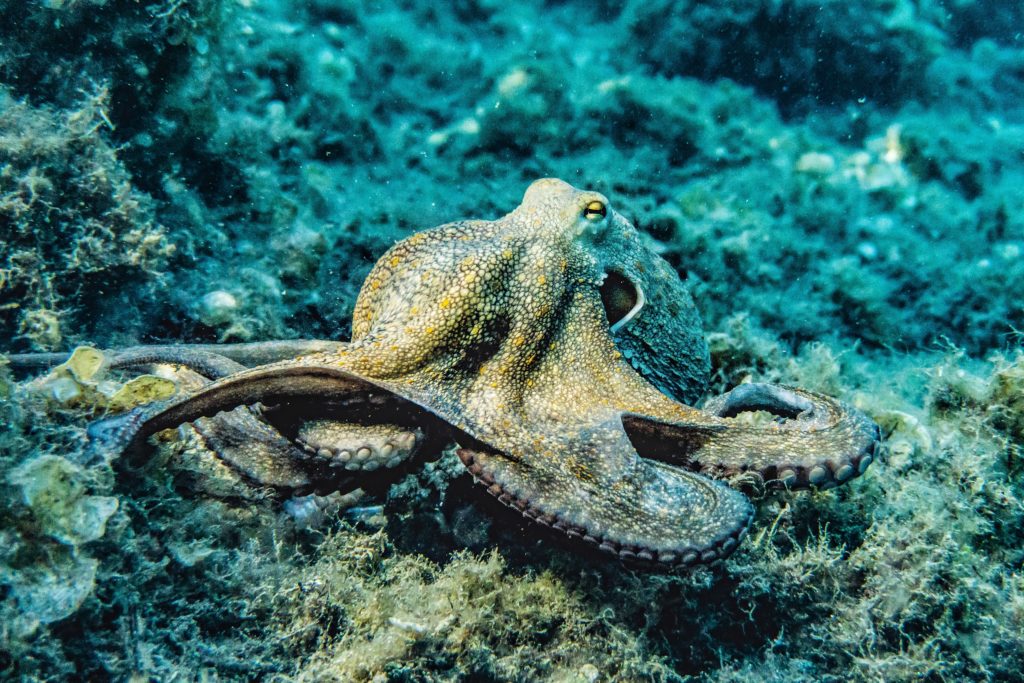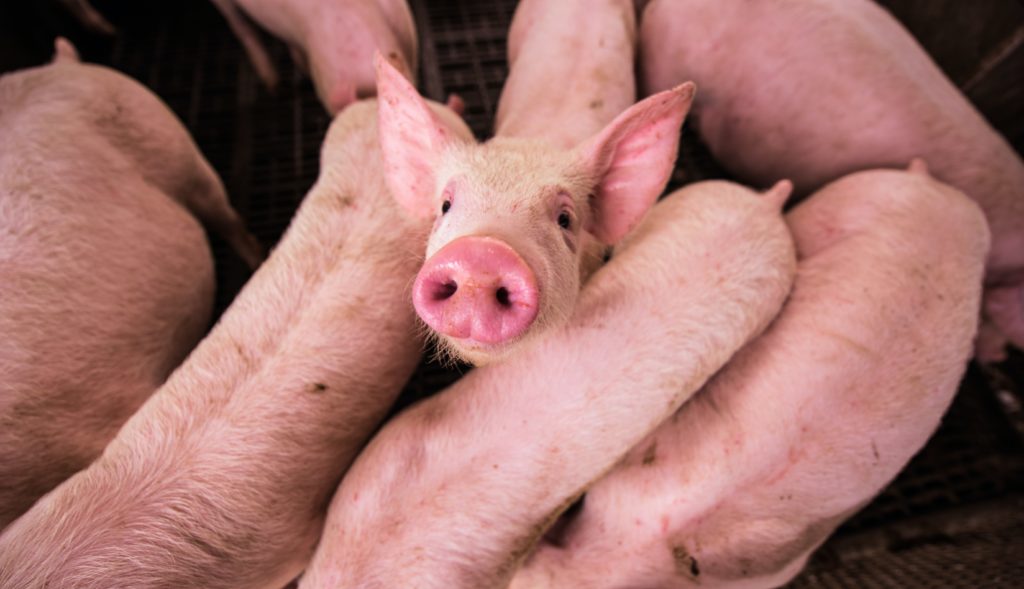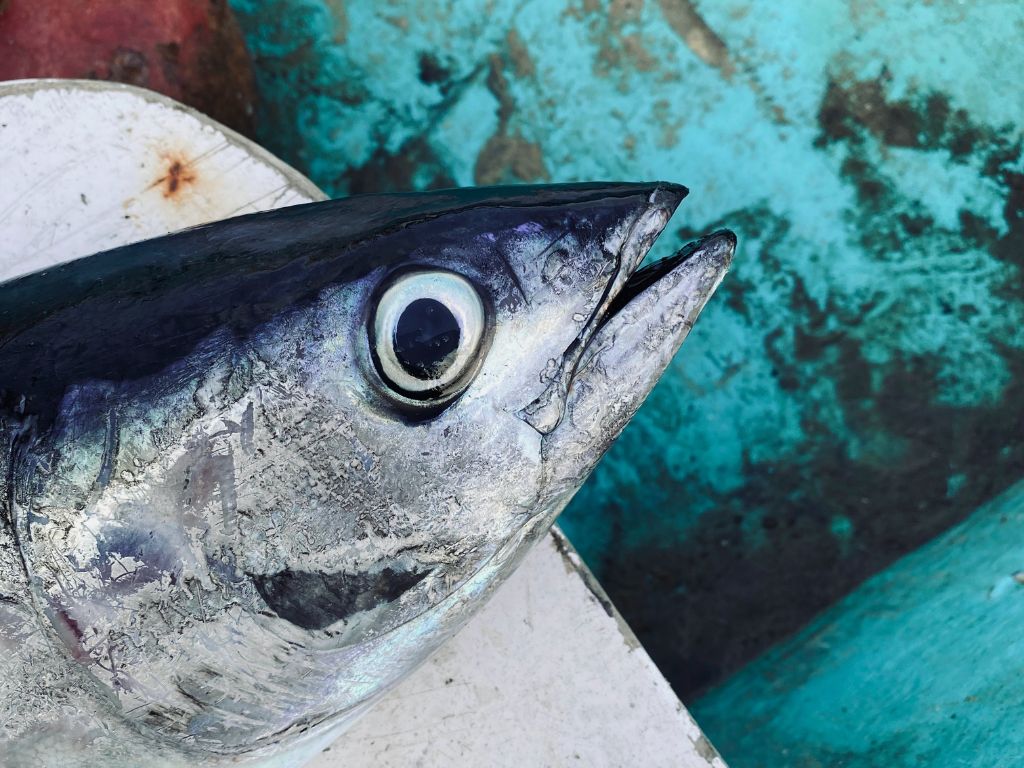As Humane Slaughter Come to Aquaculture, Is Animal Welfare At a Tipping Point?
5 Mins Read
Fish deserve a humane death says the Aquaculture Stewardship Council (ASC), one of the world’s leading farmed seafood organizations, in a move that elevates animal welfare standards to new heights.
The ASC said for the first time that fish feel “pain, stress, and anxiety,” and it will introduce animal welfare regulations to bring the farmed fish industry toward humane slaughter practices.
Farmed fish slaughter
ASC oversees labeling for supermarket fish sold throughout Britain, but the industry up to this point has been allowed to self-regulate slaughter. The organization is currently collecting feedback on proposed standards “on the practical impact and auditability of the suggested requirements from producers, primary processors, and auditors as well as to understand stakeholders’ opinion on the entire proposal.”
Chief among the changes to farmed fish slaughter would be the required step of stunning, a practice currently required for most land-based animals. Effective stunning renders the animals unconscious before slaughter. Current standards for fish slaughter allow for death by asphyxia, salt baths, ammonia baths, or evisceration. The changes would first be rolled out to finned fish, but they would later extend to include shellfish such as crabs, lobsters, and shrimp, as well as other marine life.
Farmed fish is a booming industry; it’s valued at more than £1bn just in the U.K. Global farmed fish production is predicted to overtake wild fish by 2030. But both industries are taking big tolls on the world’s oceans, causing mass species depletion and die-off, ocean acidification, and accelerating global warming.

“Just like other animals, fish are intelligent, sentient beings that need protection from unnecessary suffering,” Nick Palmer, head of Compassion in World Farming UK, told The Guardian.
“There is now a wealth of scientific data showing fish are capable of pain and many government bodies accept this,” Lynne Sneddon, a lecturer in the biological and environment sciences department at Gothenburg University told The Guardian. Sneddon has researched pain in fish for more than two decades.
“Fish are highly intelligent. They can navigate mazes, they have numerical skills and they have complicated relationships. They should be given the same protection as mammals.”
The ASC’s decision has led to calls for the Marine Stewardship Council (MSC) to introduce similar standards. MSC is the leading organization that oversees wild fishery certifications. Experts say wild fish typically die from asphyxia after they are caught, and are often eviscerated before they die.
The British Veterinary Association says protections should also be extended to wild fish. “There should be further research to develop effective, humane and commercially viable methods of stunning for wild-caught fish,” the group said. “Once effective, humane and commercially viable methods of stunning wild-caught fish are developed, the UK governments should include the stunning of wild-caught fish in commercial fisheries.”
Octopus sentience
The news comes as NGOs from around the world are also calling on the E.U. to ban a proposed octopus farm. Nueva Pescanova is currently planning to open the world’s first commercial octopus farm in Las Palmas de Gran Canaria.

The farm plan was first announced last year to widespread criticism as octopuses are highly intelligent animals capable of solving puzzles, escaping enclosures, and forming friendships, as depicted in the 2020 Oscar-winning documentary, My Octopus Teacher.
“Octopuses are highly intelligent, sentient beings that feel pain and distress,” Elena Lara, Research Manager at Compassion in World Farming, said in a statement.
“They should never be forced together in factory farms while other sea life is decimated in order to rear them. The EU must ban the farming of octopuses and other cephalopods to ensure this cruel practice cannot be developed.”
Animal welfare victory in Utah
Advocates of animal welfare and humane slaughter saw a big and largely unexpected victory last week when a Utah jury ruled against Smithfield Foods, the world’s largest pork producer, in a case against animal rights activists. The activists liberated pigs from Circle Four Farms in Beaver County. Smithfield was seeking felony burglary and theft charges against the activists.
A number of animal agriculture-producing states have passed controversial “ag-gag” laws that criminalize documenting farm activities via unauthorized photos or videos. This has long been a tool for activists to expose animal mistreatment. Utah’s law was overturned in 2017.

The jury’s decision came as a shock to many, as the region’s economy is so closely tied to the pork industry.
“This is a resounding message about accountability and transparency,” Wayne Hsiung, 41, one of the activists charged, said in an interview after the jury’s decision. “Every company that is mistreating its animals and expecting that government and local elected officials will just go along with them because they have them in their pockets will now realize that the public will hold them accountable, even in places like Southern Utah.”
Animal testing victory
And, last month, the U.S. Senate passed the FDA Modernization Act 2.0 (S.5002), introduced by Senators Rand Paul (R-Ky.) and Cory Booker (D-N.J.), without dissent. The legislation is aimed at reducing animal testing on dogs, primates, and other animals in the years ahead.
“This is the biggest policy development in Congressional history on the fight to replace animal testing with morally and scientifically superior methods,” Senator Paul said in a statement.

“The FDA Modernization Act 2.0 will accelerate innovation and get safer, more effective drugs to market more quickly by cutting red tape that is not supported by current science, and I’m proud to have led the charge with our fellow cosponsors. The passage of this bipartisan bill is a step toward ending the needless suffering and death of animal test subjects – which I’m glad both Republicans and Democrats can agree needs to end,” he said.
“Thanks to modern scientific innovation, the use of animal toxicity testing for experimental drugs has become increasingly obsolete,” Senator Booker said. “This legislation will eliminate unnecessary suffering for countless animals when scientifically reliable alternative testing methods are available.”
Lead photo by Tony Sebastian on Unsplash.



